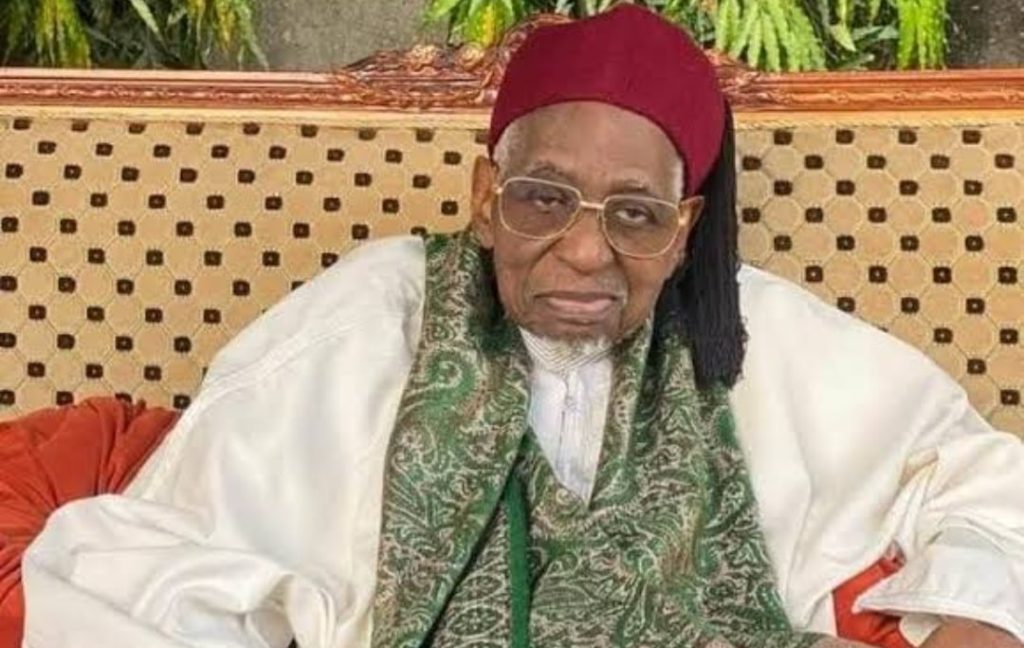The Nigerian aviation sector has recently come under scrutiny as Senator Fatai Buhari, Chairman of the Senate Committee on Aviation, raised concerns about the prevalence of old aircraft in the country’s fleet. Speaking at a stakeholders’ engagement event organized by the Ministry of Aviation and Aerospace Development in Lagos, Buhari highlighted the disparity between Nigeria’s aviation industry and those of developed nations. However, his claims were met with strong rebuttals from operators, regulators, and other stakeholders, who argued that the age of an aircraft is less critical than its maintenance standards.
Senator Buhari’s Concerns: Old Aircraft and Safety Issues
Senator Buhari did not mince words when he addressed the gathering, stating that Nigeria’s aviation industry is “over-bloated with old aircraft.” He compared the experience of flying in Nigeria to that of developed countries, where passengers often feel safer and more comfortable. “When we are abroad and you are in an aircraft, you won’t even know that the aircraft is working, but immediately you enter any of our aircraft in Nigeria, you will either start reading the book of Psalms or the Holy Quran,” he remarked. His comments underscored the perceived lack of confidence in the safety and reliability of Nigeria’s domestic aircraft.
Buhari also called on aviation stakeholders to prioritize patriotism and the welfare of Nigerians over personal interests. He emphasized the need for the sector’s handlers to ensure that safety and efficiency are not compromised, urging them to adopt global best practices.
Stakeholders Push Back: Age vs. Maintenance
In response to Buhari’s claims, the acting Director-General of the Nigeria Civil Aviation Authority (NCAA), Chris Najomo, countered that the age of an aircraft is not the primary determinant of its safety or performance. Instead, Najomo stressed that maintenance is the key factor. “How sound an aircraft is is not measured by its age but rather by the level of maintenance the aircraft gets. Maintenance is key, and surveillance on our part is important,” he said.
Najomo pointed out that even new aircraft have been involved in accidents, while older planes that are well-maintained continue to operate safely. He also highlighted the efforts of the Minister of Aviation and Aerospace Development to improve access to newer equipment through initiatives like the Cape Town Convention Practice, which aims to facilitate leasing and financing of modern aircraft for Nigerian airlines.
Airline Operators Defend Nigeria’s Fleet
Allen Onyema, Vice President of the Airline Operators of Nigeria (AON) and Chairman of Air Peace, further challenged Buhari’s assertions by stating that Nigeria actually boasts one of the youngest fleets in the world. He compared Nigeria’s situation to that of the United States, where some airlines operate aircraft that are several decades old. “America, if you go there, you see all those Ghana planes, those MD83 planes. Some American airlines are using planes that are almost 40-something years old,” Onyema said.
Onyema explained that the difference lies in the presentation and maintenance of these older aircraft. Foreign airlines often invest heavily in cleaning and refurbishing their planes, creating the impression that they are newer than they actually are. In contrast, Nigerian airlines, despite having younger fleets, may not always achieve the same level of aesthetic appeal, leading to misconceptions about the age and safety of their aircraft.
FAAN’s Role in Enhancing Passenger Experience
While the debate over aircraft age and maintenance dominated the discussion, other issues affecting the aviation sector were also addressed. The Managing Director of the Federal Airports Authority of Nigeria (FAAN), Mrs. Olubunmi Kuku, revealed that Senator Buhari had brought to her attention the need for improved internet connectivity within airport passenger areas. This suggestion aligns with global trends, where airports are increasingly focusing on enhancing the passenger experience through digital amenities and seamless connectivity.
Kuku’s acknowledgment of this issue highlights the broader challenges facing Nigeria’s aviation industry, which extend beyond aircraft age and maintenance. Infrastructure, technology, and customer service are all critical components of a modern and efficient aviation sector.
The Broader Context: Challenges and Opportunities in Nigerian Aviation
The debate over aging aircraft and maintenance practices is just one aspect of the challenges confronting Nigeria’s aviation industry. The sector has long grappled with issues such as inadequate funding, outdated infrastructure, and regulatory hurdles. However, recent efforts by the government and private stakeholders suggest a growing commitment to addressing these problems.
For instance, the implementation of the Cape Town Convention Practice is expected to make it easier for Nigerian airlines to acquire newer aircraft through leasing arrangements. Additionally, the NCAA has stepped up its surveillance and oversight activities to ensure that maintenance standards are upheld across the industry.
Despite these efforts, there is still much work to be done. The perception of Nigeria’s aviation sector, both domestically and internationally, remains a concern. Improving safety records, modernizing infrastructure, and enhancing the overall passenger experience are essential steps toward rebuilding confidence in the industry.
Global Perspectives on Aircraft Age and Maintenance
The debate in Nigeria mirrors a broader global conversation about the role of aircraft age in aviation safety. While newer aircraft often come equipped with advanced technology and improved fuel efficiency, older planes can remain airworthy for decades if properly maintained. The key factor, as emphasized by stakeholders in Nigeria, is adherence to rigorous maintenance schedules and regulatory oversight.
In the United States, for example, the Federal Aviation Administration (FAA) allows aircraft to operate indefinitely as long as they meet stringent maintenance requirements. This approach has enabled airlines to keep older planes in service, reducing costs and maximizing the lifespan of their fleets. However, it also places a significant burden on regulators to ensure that maintenance standards are consistently met.
Conclusion: A Call for Balanced Priorities
The discussions at the Lagos stakeholders’ engagement event underscore the need for a balanced approach to addressing the challenges facing Nigeria’s aviation industry. While concerns about aging aircraft are valid, they must be weighed against the importance of maintenance, regulatory oversight, and infrastructure development.
Senator Buhari’s call for patriotism and prioritization of national interest is a reminder that the aviation sector plays a critical role in Nigeria’s economic and social development. By focusing on safety, efficiency, and passenger satisfaction, stakeholders can work together to build an aviation industry that meets global standards and inspires confidence among travelers.
As Nigeria continues to navigate these complex issues, the lessons learned from other countries and the commitment of its aviation professionals will be crucial in shaping a brighter future for the sector.













